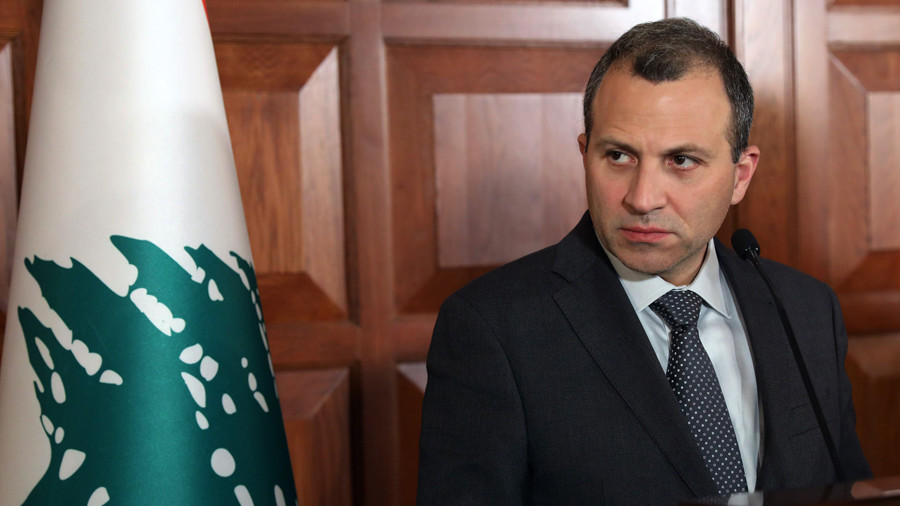Lebanon suffers intimidation attempts to cancel gas deal with Russia – Lebanese FM

Lebanese Minister for Foreign Affairs Gebran Bassil has said that there is currently an anti-Lebanon campaign in the Middle East, aimed at "intimidating" his country and forcing it to give up a joint gas project with Russia.
Beirut has faced certain difficulties in the course of its own efforts to “stabilize the region,” the Lebanese foreign minister said on Friday, ahead of his talks with Russian counterpart, Sergey Lavrov in Moscow. He revealed that, prior to the current crisis, Lebanon was "almost at a threshold of the first-ever contract to develop shale-gas fields with... Russian companies." However, a campaign to hinder the deal "under various pretexts" is now underway, he claimed.
"Some countries are trying to use certain forces to remove the head of Lebanon," he said.
"The same forces that unleashed the war in Syria and those who are feeding into terrorists are now trying to damage Lebanon," Bassil said in an interview with Interfax news agency. The minister added he would not specify which countries those forces represent.
Stating that a "campaign to intimidate Lebanon" had been launched, Bassil said that Beirut hopes Moscow would intensify its efforts aimed at "providing a balance of forces" in the region. Russia has always played a "great role" in fighting terrorism and de-escalating conflicts, he added.
"We count on further bilateral cooperation, and also on [working] on other issues, including restoring [peace] in Syria," Bassil told Russia's senior diplomat. Sergey Lavrov said Moscow stands for solving Lebanese issues through legal means, but without interference from the outside. Stressing that Russia wholly supports Lebanon's "sovereignty, unity and territorial integrity," the head of the Russian foreign ministry said that "the most important thing" for the Middle-Eastern country is to resolve issues "through dialogue" and considering the interests of all leading political forces.
Earlier this month, Lebanese Prime Minister Saad al-Hariri abruptly resigned in a surprise announcement made during a visit to Saudi Arabia. The politician also accused Iran and Lebanon-based group Hezbollah of a "desire to destroy the Arab world." Riyadh's role in the ongoing Lebanese political crisis remains obscure, but the president of Lebanon, Michel Aoun, has stated that Hariri is being "detained" by the Saudis.
Riyadh has said its policy is a reaction to Iranian "aggression," but claimed Hariri's resignation was his own decision. Saudi Foreign Minister Adel al-Jubeir stated the kingdom had decided to take action in response to what it called the increasingly aggressive behavior of Tehran in the region, particularly in Yemen and Lebanon. Hariri himself wrote on social media Friday that he had stayed in Saudi Arabia "for consultations on the future situation in Lebanon and its relations with the Arab region," dubbing all other presumptions "rumors."
In a new twist this week, plans were revealed for Hariri to leave Saudi Arabia for France before traveling to Beirut. The Lebanese politician has accepted the invitation of French President Emmanuel Macron, who insisted it was not an offer of political exile. On Friday, the Elysee Palace announced Macron is scheduled to meet Hariri on November 18.
Beirut hopes Hariri will return to Lebanon after his French visit, Bassil said on Friday. Stressing that "the main task" now is to provide for the politician's safe return without any conditions and restrictions on his freedom, the head of the Lebanese Foreign Ministry said that Hariri should make a final decision on resignation while being present in Beirut.


0 Comments:
Post a Comment
Subscribe to Post Comments [Atom]
<< Home